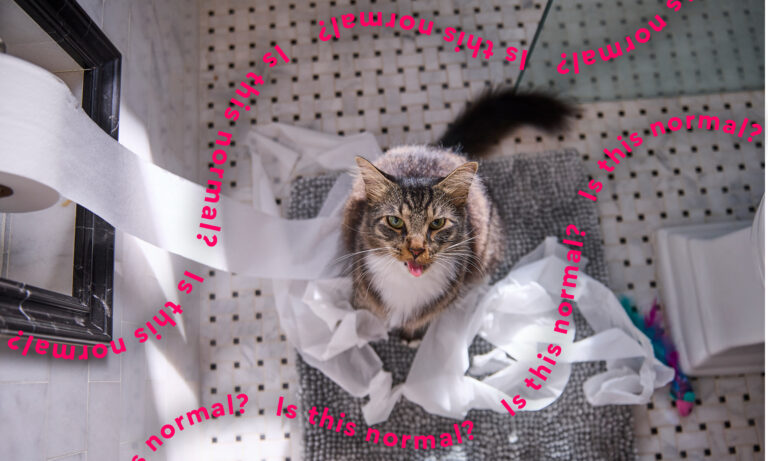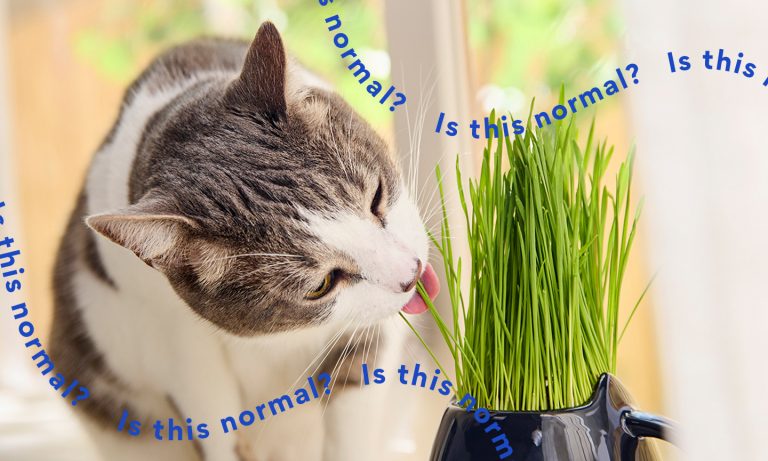Pets hold a special place in our hearts and homes. In fact, 85 percent of dog parents and 76 percent of cat parents consider their pets to be family members, according to research by the American Veterinary Medical Association.
Family is forever, which is why it’s important to plan for your pet’s future—with or without you. If your pet outlives you, a pet trust can ensure that they continue to live comfortably and safely with trusted guardians or loved ones.
“It’s a hard thing to think about, but that doesn’t mean it isn’t worth thinking about,” says Daniel Sieberg, chief marketing operator and co-founder of estate-planning startup GoodTrust in Palo Alto, California. “A pet trust offers the peace of mind that whatever happens to you, your pet will be taken care of.”
Ready to make a plan? Read on for everything you need to know about pet trusts, from why they’re important to how they work.
What Is a Pet Trust?
First things first: What is a pet trust, anyway?
A pet trust is a legally enforceable arrangement that provides for the care of one or more animals should the owner die or become disabled. In addition to providing monetary funds for the lifelong care of the pet, a trust can also stipulate how the pet is cared for on a day-to-day basis.
For Paul Deloughery, an Arizona-based wealth management attorney, the care aspect of a trust is especially important. His own pet trust ensures that his dog, a high-energy Vizsla, receives a certain amount of exercise each day.
“If you want to make sure your pet gets fed a certain food or given certain treats, putting money in trust for that purpose is the best way to go,” explains Deloughery. “Otherwise, after you have passed away, the new owner may cut corners on food and veterinary care.”
Is a Pet Trust a Trust Fund?
Even if this is your first time hearing about a pet trust, you’ve probably heard the term “trust fund.” Trusts and trust funds are related, but not exactly the same thing: A trust is the agreement that specifies how assets will be used; the trust fund is the legal entity that contains those assets.
So a pet trust is not technically a trust fund, but a pet trust will have a trust fund associated with it.
Pet Trust vs. a Will
It’s important to note that a will and a trust are different, especially when it comes to pets. While you consider them family, legally speaking, pets are more akin to furniture or jewelry in wills.
“In most states, pets are classed as property, and as such, you cannot leave anything to them in your will,” explains Colin Palfrey, chief marketing officer at financial planning service Crediful in Scottsdale, Arizona. “You can enter a clause appointing someone as guardian or beneficiary, but be aware that they may not be able to take your pet, or they may change their mind.”
How Does a Pet Trust Work?
Once you get past the legal jargon, pet trusts are fairly straightforward arrangements that are easy to set up and manage.
The pet parent—known as the “grantor”—creates the trust, which includes funds for animal care and instructions on how the funds should be distributed. (For example, you may specify that your pet requires regular teeth cleanings, or twice-yearly wellness visits.)
When the grantor dies or becomes incapacitated, the appointed trustee becomes responsible for making payments to the designated caregiver—known as the human beneficiary—over the course of the pet’s life.
Many times, the trustee and the beneficiary are the same person. However, it can be wise to appoint two separate people for additional oversight, advises Deloughery.
“It is easiest if the new owner of the pet is also the trustee of the pet trust,” says Deloughery. “However, there is a danger in doing it that way—they may not use the money for your pet's benefit. They could use the money to go on a vacation or purchase a car. Since your pet can't talk, there isn't anyone to enforce the trust.”
After the pet has died, the pet trust distributes any remaining funds to designated beneficiaries. Many people choose to direct these leftover funds to animal shelters or welfare organizations.
How Do You Get a Pet Trust?
If you’re well-versed in legal matters and not daunted by paperwork, it’s possible to set up a trust by yourself or using online legal tools. However, most people choose to work with an estate planning attorney or law firm to ensure the trust is set up properly and able to be executed smoothly.
All 50 states and the District of Columbia have their own individual pet trust laws. Before deciding how to set up your trust, familiarize yourself with your state’s legislation and consider setting up a free consultation with a licensed attorney for legal advice.
How to Set Up a Pet Trust: Tips and Considerations
Interested in setting up a pet trust fund? As you plan, here are some things to consider:
- The amount of money needed. Taking into consideration your pet’s age, life expectancy, and lifestyle, determine how much money should be allocated to the trust. You can continue to add funds over time, too, so you don’t need to have the entire amount up front.
- The terms of the trust. How do you want your pet to be cared for if you’re not able to do it? Create a trust document outlining your pet’s needs, including diet, exercise requirements, health information and medical care.
- Your trustee and caretaker. Think about who you would like to act as your trustee and caretaker (and if this will be the same person). This shouldn’t be a surprise to them, so be sure to discuss your plans and ensure they’re willing to take on the responsibility.
- Your pet’s end-of-life care. A pet trust also addresses what happens when your pet passes. When your pet’s life comes to an end, would you like them to be buried, or is cremation preferable? Additionally, how would you like any additional funds to be used?
Who Should Create a Pet Trust?
If you read the headlines, pet trusts may seem like a quirk of uber-wealthy eccentrics. For example, hotel heiress Leona Helmsley famously left her $12 million estate to her beloved Maltese. Michael Jackson left a sizeable trust for his Chimpanzee, Bubbles, who continues to be cared for by his estate.
However, in reality, everyone with a pet should plan for the future. Animals can’t care for themselves, meaning it’s our responsibility to advocate for them and be their voice—even after our death.
Every family is different, and for some pet owners, less formal arrangements may be appropriate. GoodTrust offers a Pet Directive that, while not legally binding, provides important information about a pet’s health, routine, and needs to future caretakers.
“It ensures that people are clear about what should happen if you pass away,” says Sieberg, who created a GoodTrust Pet Directive for his own dog. “There’s often a lot of care involved with a pet that the person who gets that pet would love to have known.”
For other families, a legal trust is more appropriate. This is especially true for animals that have expensive needs or especially long lifespans. Diana Ludwiczak, a certified wildlife rehabilitator in New York, has a trust in place for her African Grey parrot, a species which can live for more than 50 years in captivity.
“Since parrots are known to outlive their owners, it’s imperative that you plan ahead,“ says Ludwiczak. “Having a trust in place will ensure your feathered friend will be well taken care of after your death.”
“Nobody wants to think about death,“ she continues, “but if we don’t do this, we may be creating a bad situation for our furry and feathered family members.”
Pet Trust FAQs
Q:
How do I set up a trust fund for my cat or dog?
Q:
Can my pet be my beneficiary?
Q:
What are the advantages of an animal trust?
As a pet parent, it can be stressful to think about a future without your loyal companion by your side. However, by planning ahead and setting up a trust, you can ensure that your pet will always be in good hands. If that’s not true love, what is?
Need help budgeting for your pet now? Get expert advice on how to create a basic budget that includes your pet care costs, plus some tips for actually sticking to it.
Get more advice on planning for the future:
Share:









